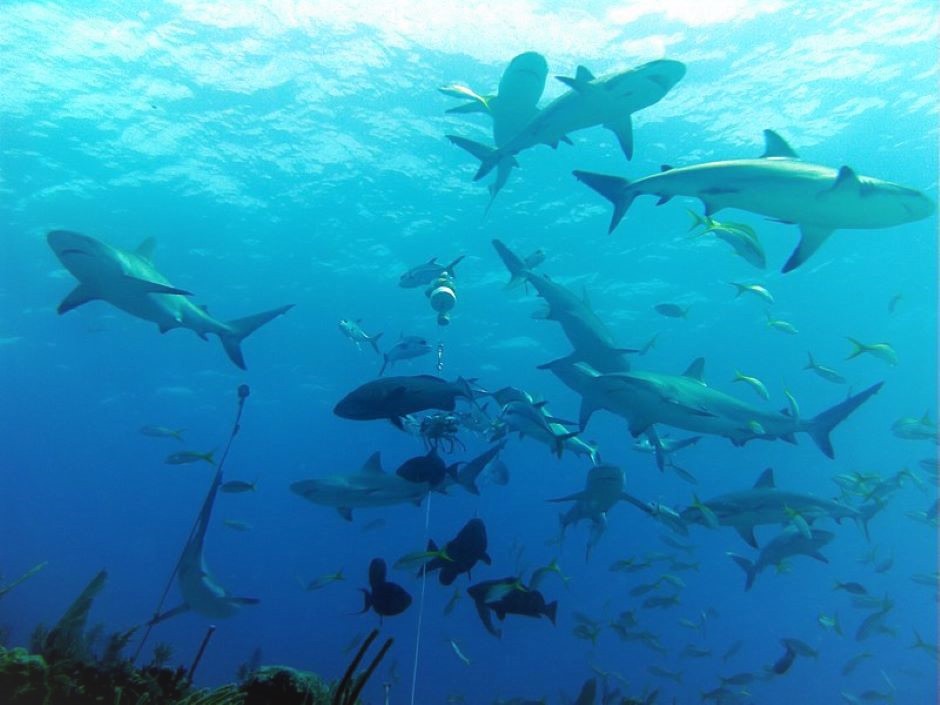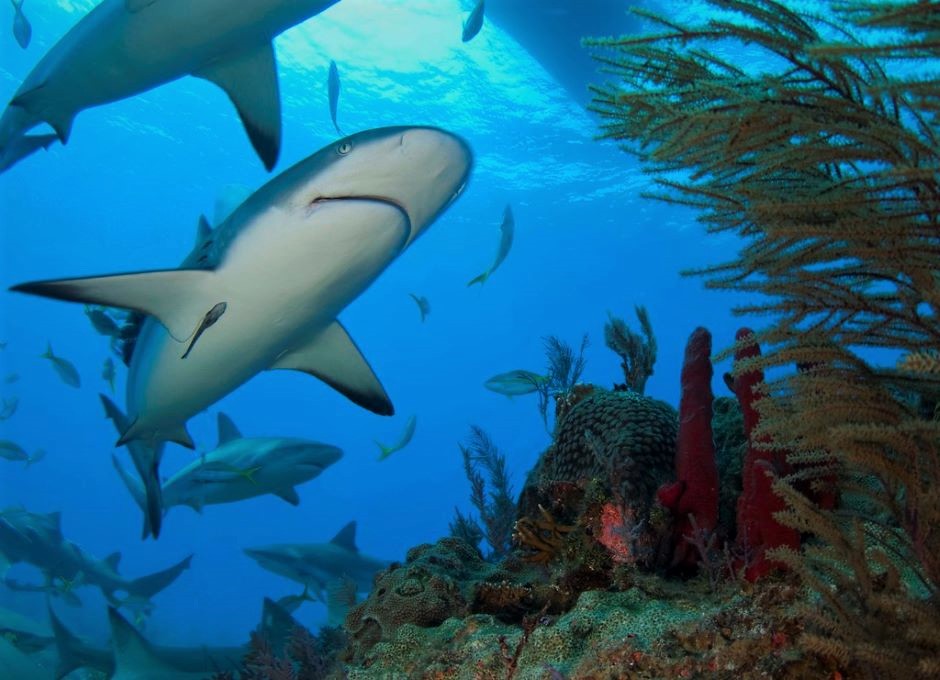Great Barrier Reef Sharks Aren’t Top Predators
 Caribbean reef sharks. (Credit: Greg Grimes via Creative Commons 2.0)
Caribbean reef sharks. (Credit: Greg Grimes via Creative Commons 2.0)Perhaps thanks to the horrifying work of Jaws (1975), sharks have gotten a bad reputation as far as personality and perceived placement on the food chain goes. Many may assume that sharks are top predators within their habitats, but sharks actually fall into the middle grouping of food chains in the ocean. Research from Australia’s James Cook University proves that, despite the horror stories, the average reef shark doesn’t dominate any ecosystem.
The research focused specifically on reef sharks inhabiting areas along the Great Barrier Reef. Scientists at the university’s Australian Research Council’s Centre of Excellence for Coral Reef Studies led the study. They focused on assessing the stomach contents of reef sharks as well as their tissue. It was possible to figure out what the fish were eating in their day-to-day lives by looking at those two things.
Reef Shark Diet
Instead of chowing down on big fish like groupers or snappers that live along the reef, the results of the analyses revealed that the reef sharks were much more likely to eat smaller prey. These included things like small fish, sea snakes, crabs and even mollusks.
Scientists found that reef sharks’ diets were similar to that of large reef fish. This suggests that reef sharks do not catch big prey, likely due to an efficient metabolism and reliance on opportunistic feeding. Such opportunities that reef sharks often take advantage of sick or injured fish that can’t run away, as well as young fish that are typically smaller in size. Vastly different from brutal killers, reef sharks are similar to many other carnivores that target easy prey and don’t waste energy or time on more difficult food sources.

Grey reef shark (Carcharhinus amblyrhynchos)(Credit: Kevin Lino NOAA/NMFS/PIFSC/ESD, CC 2.0)
Far From an Apex Predator
The sharks’ diets also revealed that reef sharks are not apex predators. Instead, they are mesopredators, which are animals that sit in the middle of the food chain, which is far from the bloodthirsty perception of great white sharks.
But it is the pervasiveness of this monstrous stereotype that is so damaging for the reef sharks. Because reef sharks are seen as competition for fish that Australian fishermen want to catch, like snapper and grouper, the anglers continue to kill the sharks in large numbers.
The harmful stereotypes don’t stop with fishermen removing reef sharks from their natural habitat. Public perception of sharks also harms conservation efforts as the species seems less worthy of saving. Both aesthetically and economically, sharks seem less important than cuddly koalas or tasty trout. Repairing damaging stereotypes is an important step in furthering shark conservation efforts.
Reef Shark Reputations and Ripple Effects on Ecosystems
Researchers say that as reef shark numbers dwindle, the potential implications become clearer. Because all animals in an ecosystem are connected to one another, a disturbance in reef sharks’ population could be catastrophic for the local ecosystem.
Those effects are pretty clear. If all the apex predators are removed, the populations of animals at the next level tend to increase. Because there’s an overabundance of that second level, there’s a depletion of the next level down and it only continues rippling on from there.
With that in mind, there are pushes to break down anti-shark stereotypes that exist. These include promoting scuba programs, like one at Maui Ocean Center in Hawaii, that let people swim with sharks in a peaceful setting.
Not all sharks are the same. Each species within the group have different diets, behaviors, temperament and personalities that vary from fish to fish. Even their placement in the food chain changes, depending on the shark. It’s unfair to judge all sharks because of 1 film or the few and far between shark attacks reported. Instead, conserving any and all members of the natural ecosystem should be a priority.


0 comments